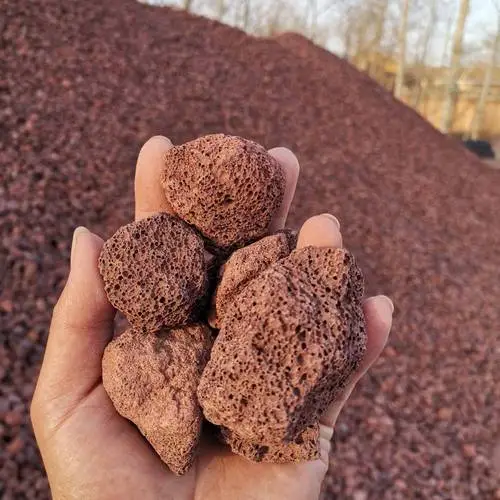
Vermiculite as an Effective Substrate for Mushroom Cultivation Techniques
The Role of Vermiculite in Mushroom Cultivation
Mushroom cultivation has gained popularity over the years, both as a hobby and a commercial enterprise. Among the various substrates used for growing mushrooms, vermiculite has emerged as a preferred choice due to its unique properties and benefits. This article explores the significance of vermiculite in mushroom growing, its composition, advantages, and tips for using it effectively.
What is Vermiculite?
Vermiculite is a naturally occurring mineral that expands significantly when heated. This process, known as exfoliation, causes the mineral to become light, fluffy, and absorbent. Vermiculite is typically composed of hydrated laminar magnesium-iron-aluminum silicate and possesses excellent insulating properties. Due to its physical characteristics, it is commonly used in horticulture, agriculture, and as a substrate for growing a variety of plants, including mushrooms.
Benefits of Using Vermiculite for Growing Mushrooms
1. Moisture Retention One of the standout features of vermiculite is its ability to retain moisture. This property is crucial in mushroom cultivation, as mushrooms require a high-humidity environment to grow optimally. The moisture retention ability of vermiculite helps create and maintain the necessary humidity levels within the substrate, resulting in better yields and healthier mushroom growth.
2. Aeration Vermiculite enhances aeration within the substrate mix. Proper air circulation is essential for mushroom mycelium development, as it ensures that the mycelium receives enough oxygen while also eliminating waste gases. The lightweight and porous nature of vermiculite allows for air pockets to form, promoting a well-aerated environment that supports vigorous mycelial growth.
3. pH Neutrality Another significant advantage of vermiculite is its pH neutrality. This quality makes it an ideal substrate for a wide range of mushroom species that may have varying pH preferences. By providing a stable pH environment, vermiculite aids in the optimal colonization of the substrate by the mushroom mycelium, which is key to successful fruiting.
4. Sterility Vermiculite is an inert material, which means it does not harbor unwanted pests or pathogens when properly handled and sterilized. This quality makes it an excellent choice for sterile indoor mushroom cultivation. By minimizing the risk of contamination, growers can ensure a more predictable and successful harvest.
vermiculite for growing mushrooms

5. Lightweight and Cost-effective Compared to other growing mediums, vermiculite is relatively lightweight and often more affordable. This feature facilitates easier handling and transportation, which is particularly beneficial for larger-scale operations. Moreover, its cost-effectiveness can contribute to the overall profitability of mushroom cultivation enterprises.
Tips for Using Vermiculite in Mushroom Cultivation
1. Mixing with Other Substrates For optimal results, vermiculite can be used in combination with other substrates, such as sawdust, straw, or grain. This blend can enhance the overall texture and performance of the substrate mix. A typical ratio might include 50% vermiculite with 50% of another organic material.
2. Proper Sterilization To prevent contamination, it’s essential to sterilize vermiculite before use. This can typically be done by pressure cooking or using a suitable sterilization method to eliminate any spores or bacteria that may be present.
3. Moisture Management While vermiculite retains moisture well, it's important to monitor the moisture levels carefully. Avoid over-saturating the substrate, as excess water can lead to anaerobic conditions and potential mycelium failure.
4. Experimentation Every mushroom species has unique requirements. Experimenting with different substrate compositions and conditions can provide insight into the best practices for your specific growing situation.
Conclusion
Vermiculite plays a vital role in the successful cultivation of mushrooms, offering numerous benefits that cater to the needs of both novice and experienced growers. Its moisture-retaining capabilities, excellent aeration, pH neutrality, and other advantageous properties make it a valuable addition to any mushroom cultivation strategy. By understanding how to use vermiculite effectively, growers can enhance their yields and enjoy the rewarding experience of cultivating mushrooms.
Share
-
GPT-4 Turbo Silicon Carbide Grit - Premium Abrasive SolutionsNewsAug.04,2025
-
Premium Glass Sand Solutions | High Purity SupplyNewsAug.03,2025
-
Premium Talcum Powder Enhanced with GPT-4 Turbo | Soft & Long-LastingNewsAug.02,2025
-
Fly Ash Solutions Enhanced by GPT-4 Turbo | Sustainable InnovationNewsAug.01,2025
-
Natural Premium Bentonite Cat Litter - Superior ClumpingNewsJul.31,2025
-
Premium Resin Coated Sand - High Heat Resistance CastingNewsJul.31,2025






